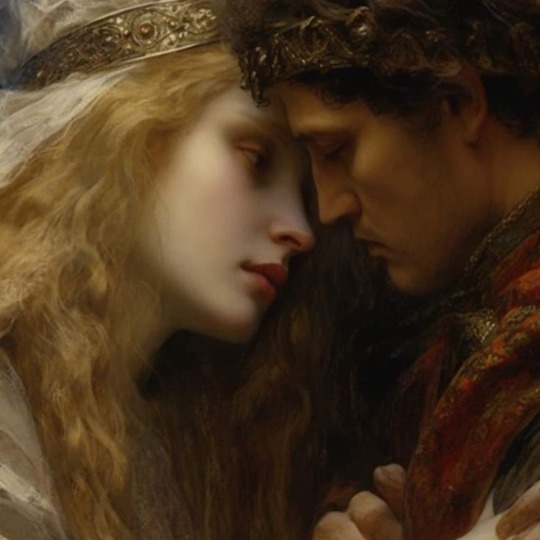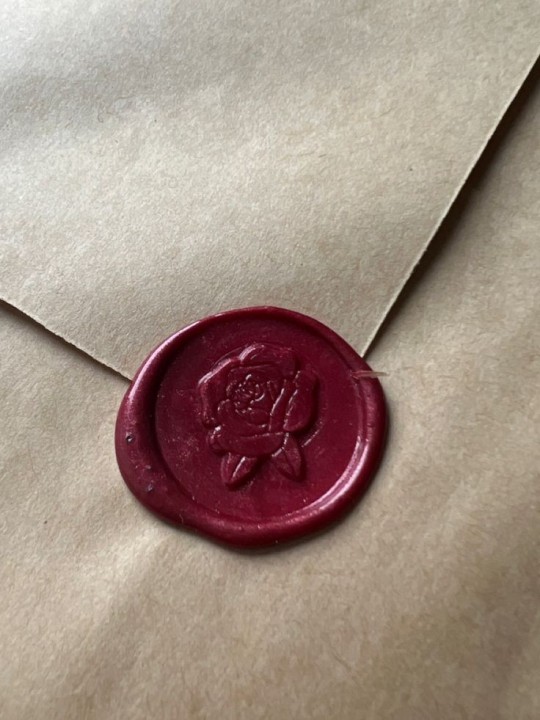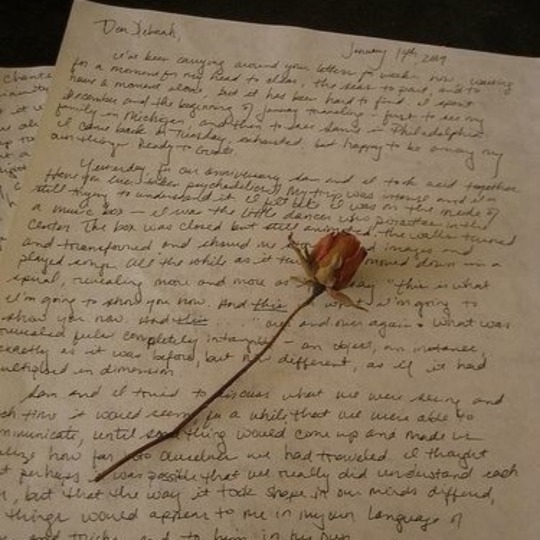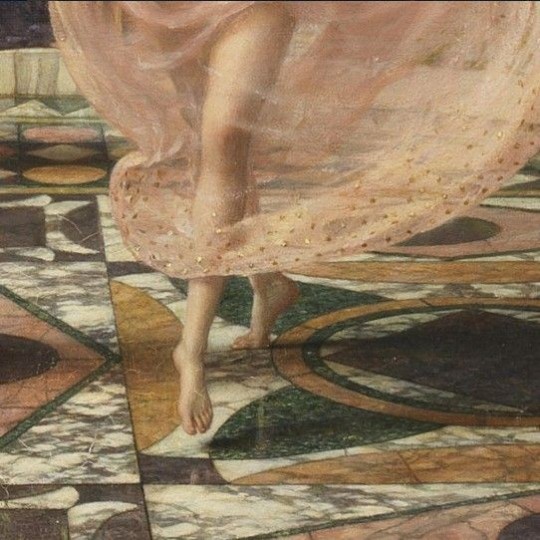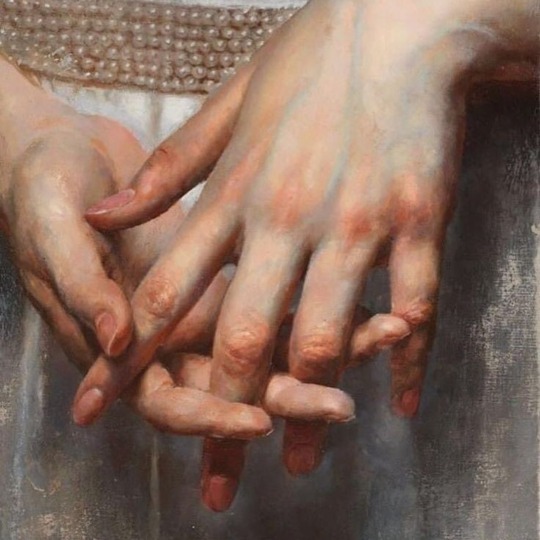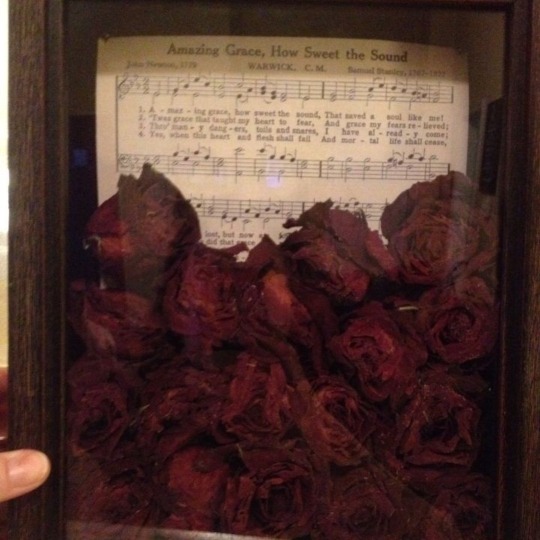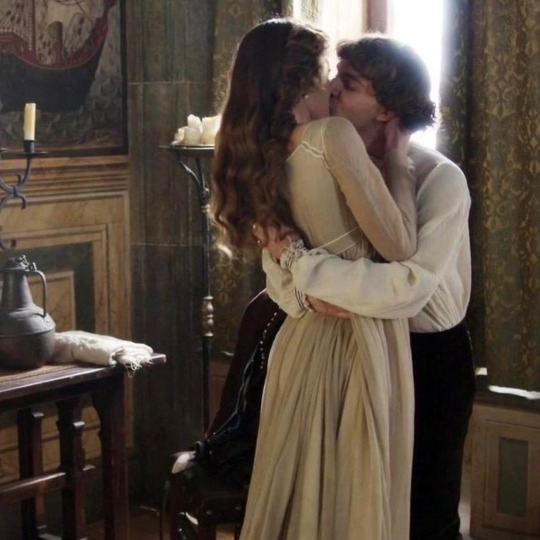#medieval queens
Quote
The female sovereign not only had rights, but duties too. She had to practice the ‘profession of queen’, which was not simply reduced to the acts of procreation and caring for the children of France. Far from being confined solely to the private sphere, she participated in the communication of power, and, as her husband’s corporeal double, she embodied the female equivalent of majesty. At once queen of ceremonies, queen of hearts and renowned patroness, she also contributed to the proper functioning of ‘court society’. Isabeau of Bavaria even played a broader political role due to her husband’s intermittent ‘absences’ (due to bouts of madness).
Queenship in medieval france 1300-1500, Murielle Gaude-Ferragu
69 notes
·
View notes
Note
Does Viserys ignore the children he had with Alicent in the book? Although in the series, it's clearly more Viserys' illness that's the cause of less time with the kids, rather than him disliking them and willfully ignoring them.
*EDITED POST* (4/9/24)
House of the Dragon’s Viserys
Viserys obviously favored Rhaenyra (politically). But I feel it is tied to how Show!him had a real romantic connection with Aemma yet killed her without her knowledge or consent so he could have a son who didn’t live long anyway.
Adding to that, from the trauma of losing several of his pre-kids/kids to miscarriages and stillbirths and his wife probably almost dying in some of those pregnancies--a daughter is still better than having no kids at all because he genuinely wanted kids, and because this is a feudal world where inheritance and lineage leads to pride, identity, security and power--Viserys would also care for or favor Rhaenyra even more. Rhaenrya s his first child of a series of children who all died; she is kinda his "miracle child as well as the child that officially made him a father.
Like how you hear and read fathers value their child after their mother died giving birth to them, Viserys would see this daughter as his only connection to Aemma as well as try to “make it up” to her by making their only daughter successful.
So he is more attached to Rhaenyra other than her being the only child Aemma ever could bring into being successfully.
(This does not mean that Viserys’ pain matters or is more than Aemma’s emotional and physical pain. The betrayal she would have felt when she realized Viserys was cosigning her final moments to pain--without her knowledge or permission. Because it doesn’t--he is still accountable and I dislike him and people like him. I’m saying that before he did this to Aemma, he did experience lost hopes for an heir as well as pain from having his children die before they could ever be.)
It also doesn’t mean that he doesn’t value Rhaenyra as his progeny or offspring.
He didn’t fully value her as his potential heir, or as a true, politically autonomous agent in her own right.
In the show, however, I also think that a combination of:
his rotting
Alicent's constant protests against Rhaenyra and her children/his accepted grandkids
his finding out about Otto’s hand in pushing Alicent and Viserys having to even pursue this after Young Rhaenyra told him that Otto overstepped his bounds as someone not even a part of the royal family and having her followed without royal permission and Viseys’ added guilt or confliction about that moment where he did a fuck up himself and tried to go at Rhaenyra, when he was so shortsighted himslef
all comes to him choosing to be more hands off towards his green kids and let Alicent and Rhaenyra's rivalry foment until major events happened.
His determination to keep Rhaenyra in her position that all comes across as him just “loving” Rhaenyra to an extreme to some people watching the show.
In the Book Fire and Blood and by Original Canon Lore
He had complications with his weight. Over time, he experienced more chest tightness and gout that get worse until he finally dies. Stress would have exacerbated it--his worries with his wife and daughter duking it out constantly, the tension at court, his worries over the succession, etc.
There was no literal decay. And there isn't a solid, or direct indication or quote that shows us he actively favored Rhaenyra more than his other kids.
There is also no indication that he would or did kill Aemma for Baelon (dead son) in the book.
However, we can read between the lines and reason that he valued Rhaenyra differently then his other kids for the same reasons I listed about Show!Viserys, even if Aemma had just died on her own. For being his only child by Book!Aemma, who still dies trying to birth him an heir. Doesn't mean that he didn't love them, in the book, we see he spends time with Helaena and her kids, one of those moment sjust hours before his death When he's telling them stories about past Targ generations ("A Question of Succession"):
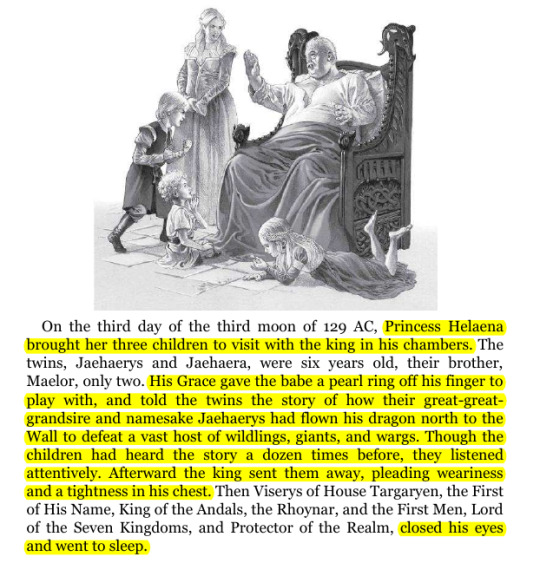
Why Viserys Protects Rhaenyra’s Position in Both the Show and the Book/Canon Lore
Other than what I already said about the sort of love he has for her...
1)
Politics: public image and house reputation and what we can hide and manipulate to maintain control.
If Rhaenyra is revealed to have bastard kids, then the house cannot deny the shame (objectively it is not shameful for a woman to have kids out of wedlock no more than it is for a man to do similar. Shameful in terms of cheating on your spouse if you two did not agree to an nonexclusive arrangement beforehand. But otherwise, not shameful. In the context of medieval politics and patriarchy, it becomes shameful to have this out in the open...and even then, it depends on the political climate of the persons).
But if it is kept hidden, then the reputation doesn’t completely falter, the line of succession goes throuhg Rhaenyra, and the whole house doesn’t face censure.
lt and the people can still work under an image.
If you don't like this, blame politics and patriarchy.
This is what @the-king-andthe-lionheart says in a reblog:
“With regard to royal children, the only consideration more important than their kingly blood was the monarch’s self-interest. Many kings acknowledged children they knew had been fathered by someone else. Often, kings did not want to cast doubt on the paternity of older children they knew to be their own. In the case where the king could not father children, sometimes court factions heartily desired the queen to bear bastards in order to stabilize the throne and cement their own interests.
Fortunately, the queen’s complete and utter disillusionment with her husband usually set in after the birth of the heir. And so it was not deemed worthwhile to lose international prestige, throw the nation into tumult, and question the paternity of all royal children, simply to deny the one cuckoo in the robin’s nest. In the early nineteenth century, the last son of King John VI and Queen Carlota Joaquina of Portugal was extremely good-looking and slender - unlike either of his parents - and happened to be the spitting image of the handsome gardener at the queen’s country retreat. Other than a few snickers behind painted fans, no one said a word.” (Sex With The Queen by Eleanor Herman)
and
“It was never adultery alone that did in a queen, or the fact that she did not resemble the Virgin Mary, or that she had polluted the royal bloodline. It was politics.
If the queen followed the traditional pattern of bearing children, embroidering altar cloths, and interceding for the poor - pious duties that the Virgin Mary would likely have approved of - even if she took a lover she was usually left in peace. There was rarely reason to shoot down a political nonentity at court. But an intelligent ambitious woman who spoke her mind and built up a faction was always open to the accusation of adultery by her political rivals, whether the accusation was true or fabricated.
Adultery charges offered the accuser many benefits. The very mention of adultery suddenly cast doubt upon the legitimacy of the offspring of a suspected queen, possibly rendering them unfit for the throne and opening the door to other ambitious candidates - usually the accusers themselves [...] (Sex With The Queen by Eleanor Herman)”
Plus he had already named Rhaenyra heir long ago.
While you are the monarch and can change the heir while the previous is still alive, to change the heir would have come across as revealing or “admitting” Rhaenyra’s not having trueborn sons.
Defeating the entire purpose of protecting her and going against the need and cultural compulsion to uphold his and his house’s own public image/reputation.
So Viserys wanted to make sure the throne kept his feudal dignity.
Feudalist power and monarchy.....you know, the thing the Greens canonically wanted just for itself in the first place?
2)
The other reason why Rhaenyra is allowed to get way with her sons’ illegitimacy is because Viserys wants to keep her and the grandsons he accepts as his grandsons alive. Because he loves them.
Viserys is not a good father, but he is not Tywin Lannister--one of the most evil fathers to exist in Westerosi history.
I doubt a father/grandfather who has some real caring for their child/granfchild, no matter their position, would allow his child and grandchild’s lives to be forfeit.
If Rhaenyra is publicly revealed with inscrutable evidence that he can’t just ignore and deny or hide (Vaemond wasn’t enough) to have had illegitimate children, then her kids could die, could be exiled, or face total ruination to the point they can’t live in Westeros without facing worldwide hatred for being illegitmate.
3)
Which, by the way, comes from a bogus Faith belief. The same religion rules that children who are born out of wedlock (parents who weren’t married to each other) are inherently untrustworthy. The logic is that because these people are born from “lust, lies, and weakness, and as such, they are said to be wanton and treacherous by nature”.
This is blood purity, anon. That one would actually believe that a person is inherently evil, dangerous and lesser than another because their birth didn’t happen within a marriage is to say that people can have inherently traits that define their entire being and value in society forever and ever.
So not only do we had the risk of women all over Westeros losing even more ability to use political power, we also have the seeds of racism/outright classicism and discrimination.
Which affects every single person in a society and would make them define their entire worth according to external, socially-constructed ideology. Creating a divide between those "deserving" and those not.
#viserys i#rhaenyra i#rhaenyra and viserys#asoiaf asks to me#fire and blood comment#hotd comment#rhaenyra targaryen#viserys i's characterization#viserys i's death#westerosi politics#medieval politics#women in westeros#westerosi women#medieval women#medieval europe#the medieval period#medieval history#medieval queens#viserys and rhaenyra#fire and blood characters#asoiaf#fire and blood#eleanor herman
41 notes
·
View notes
Text
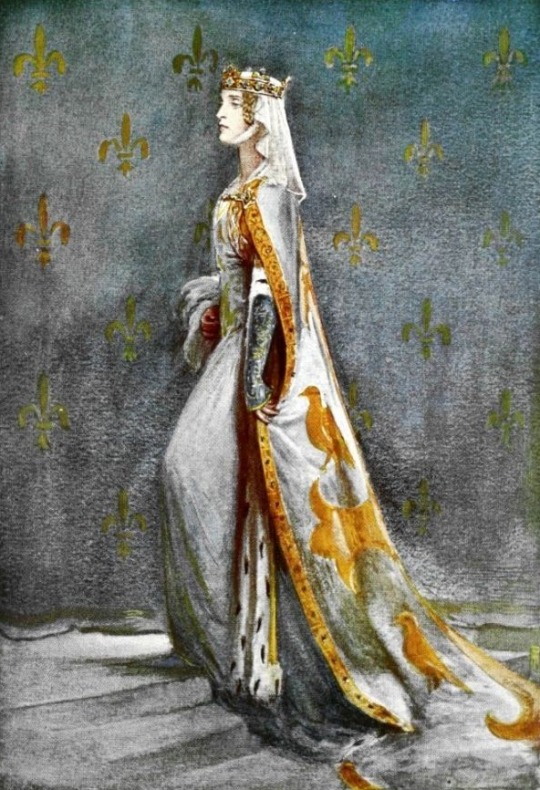
Anne of Bohemia – illustration by Percy Anderson for 'Costume Fanciful, Historical and Theatrical', 1906
#anne of bohemian#percy anderson#illustration#1900s#richard ii#14th century#middle ages#medieval#14th-century fashion#medieval costumes#1300s#monarchy#medieval monarchy#bohemia#medieval queens#queen of england#queens
39 notes
·
View notes
Text
“No matter which way I looked at it and no matter how much I turned the matter over in my mind, I could find no evidence from my own experience to bear out such a negative view of female nature and habits. Even so, given that I could scarcely find a moral work by any author which didn't devote some chapter or paragraph to attacking the female sex, I had to accept their unfavourable opinion of women since it was unlikely that so many learned men, who seemed to be endowed with such great intelligence and insight into all things, could possible have lied on so many different occasions”
CHRISTINE DE PISAN, The Book of the City of Ladies
#late medieval#medieval history#history#middle ages#15th century#14th century#feminism#the middle ages#1400s#1450s#medieval queens#book quote
50 notes
·
View notes
Text
‘The Great’ Medieval Rulers
#medieval#medieval kings#medieval queens#medieval times#medieval period#interesting#i-am-theseeker#kings#queens#king#queen#past history#histories#historians#history#historical#historical records#recorded history
0 notes
Text

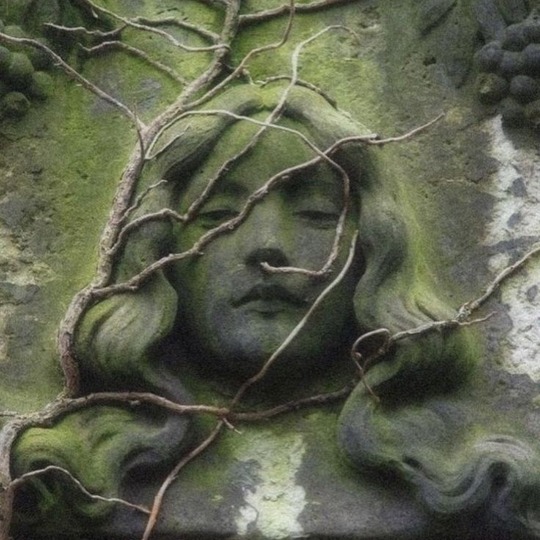

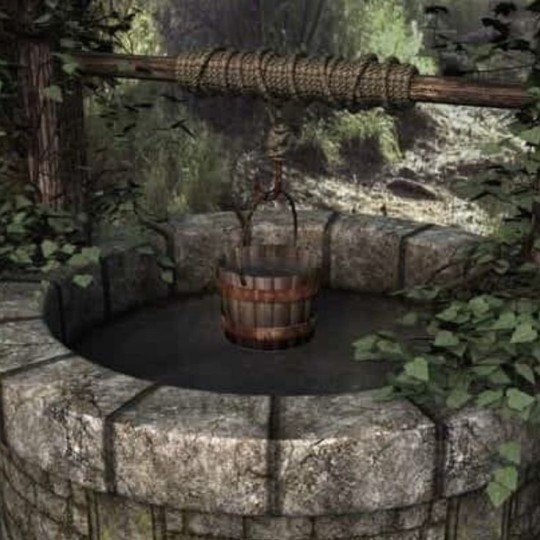

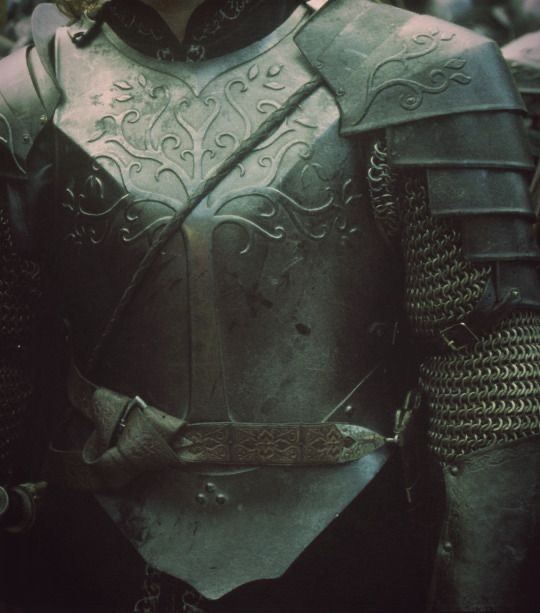

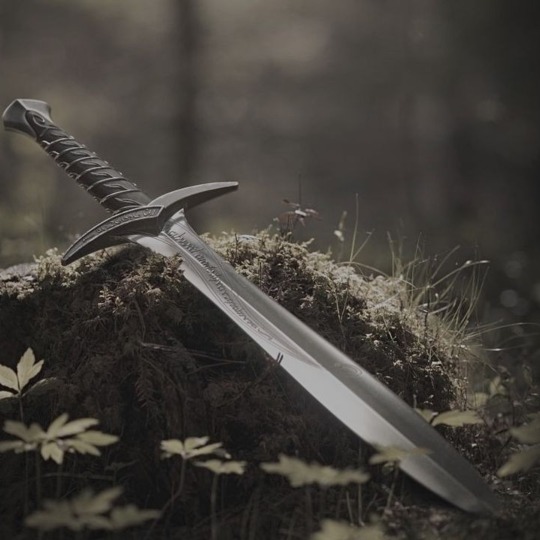
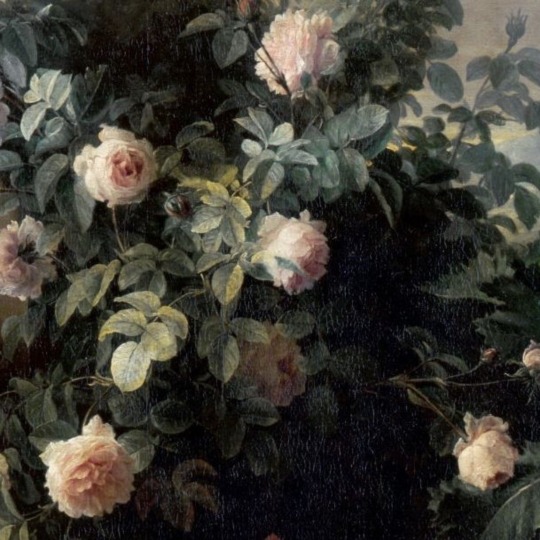
#moodboard#aesthetic#icons#indie#pinterest#naturecore#medieval#history#king and queen#castle aesthetic#castle#green academia#green aesthetic#dark green#green#green moodboard#fantasy aesthetic#fantasy#royal core#royalcore
2K notes
·
View notes
Text
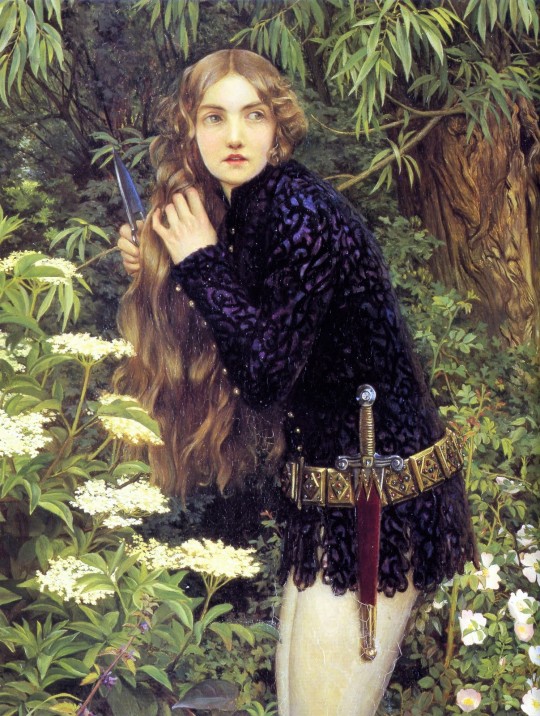
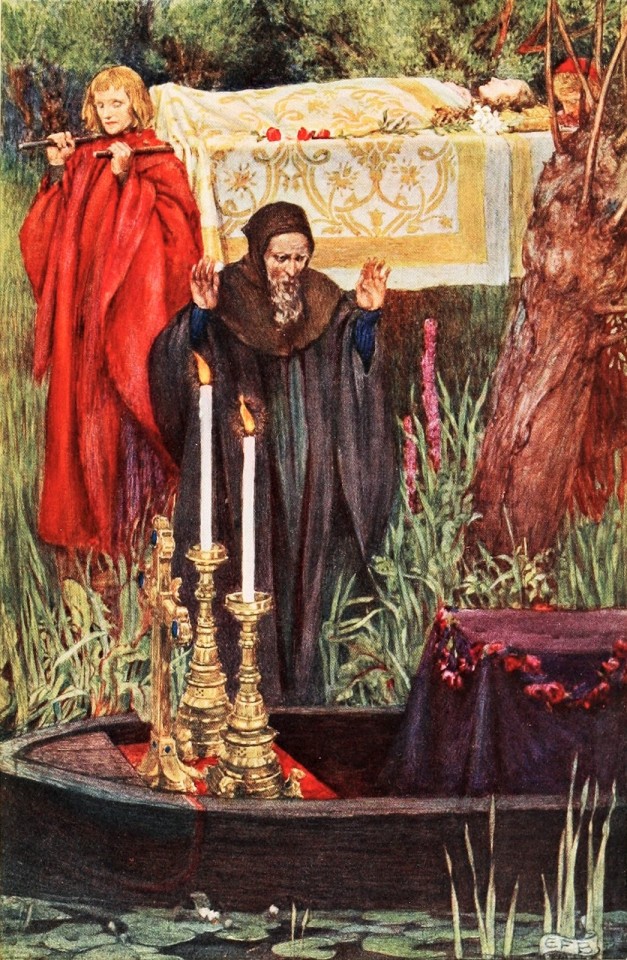
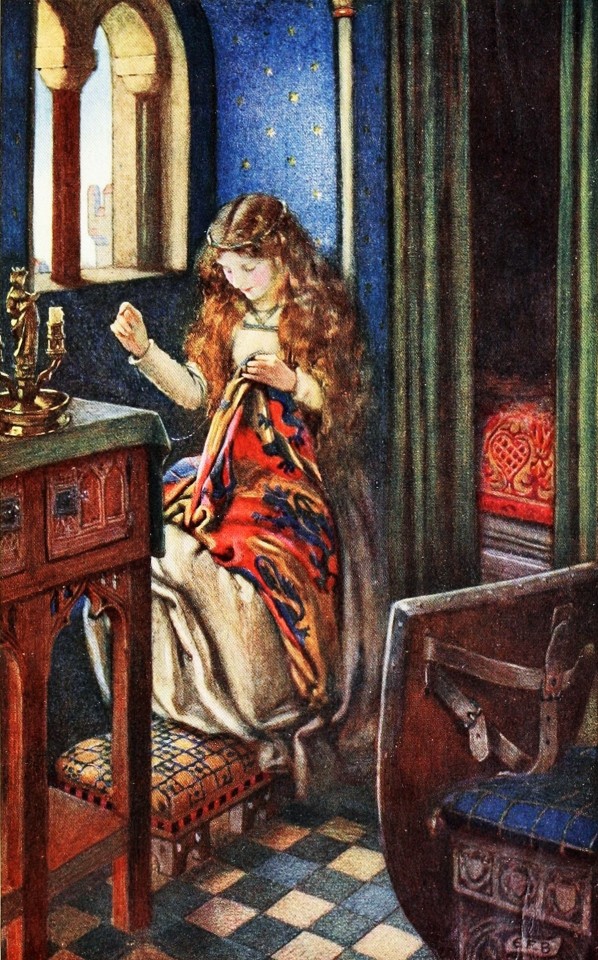
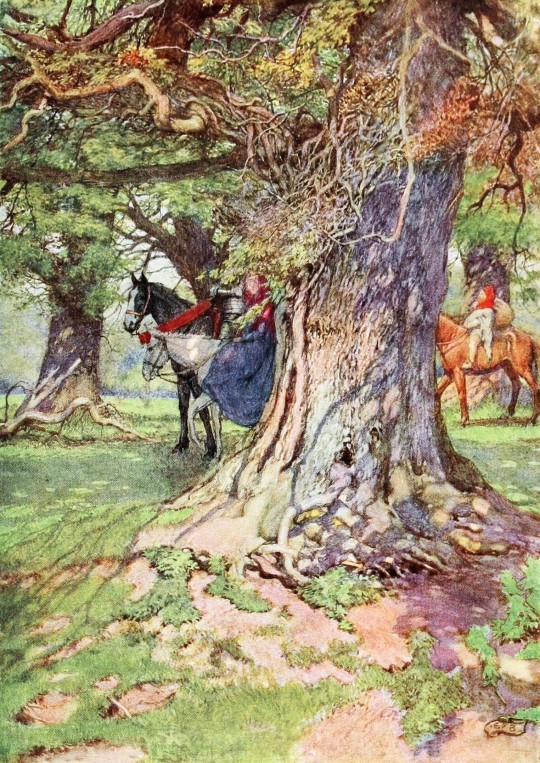
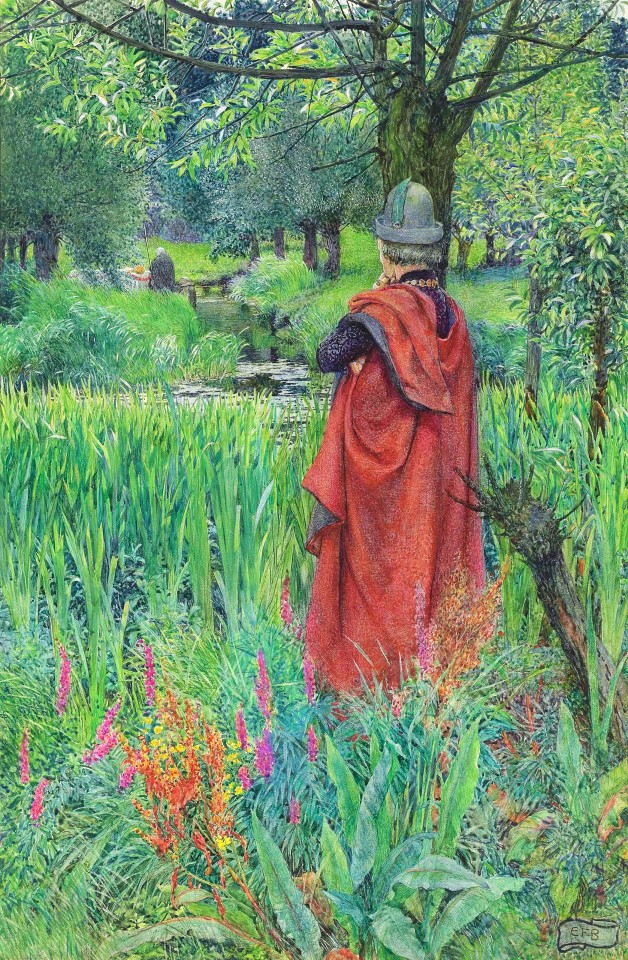
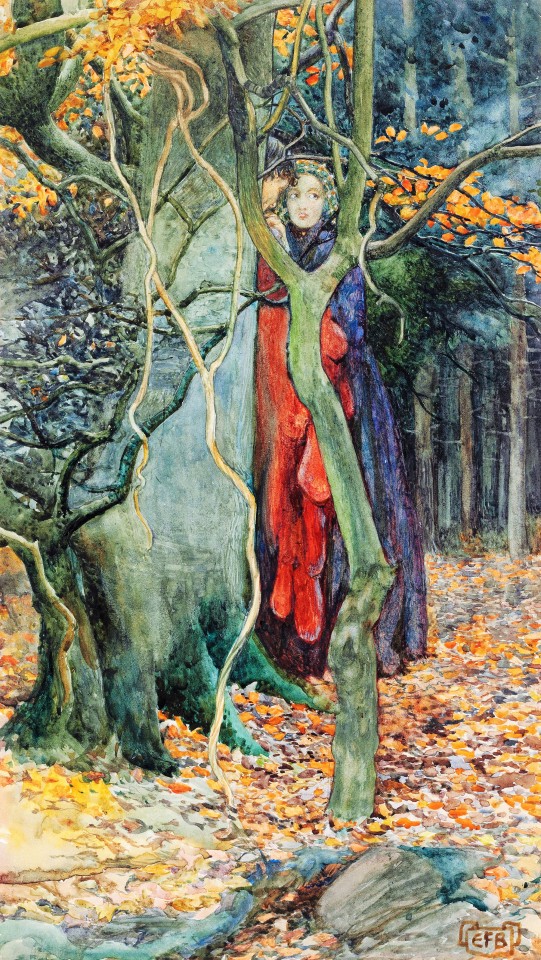
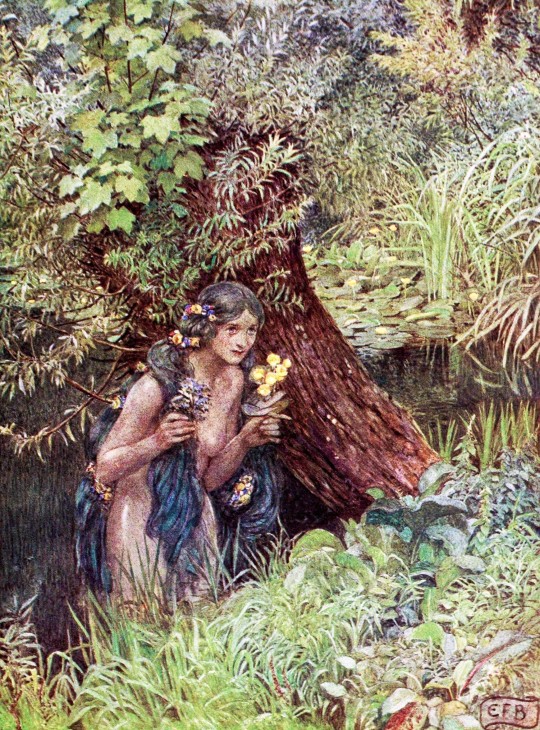
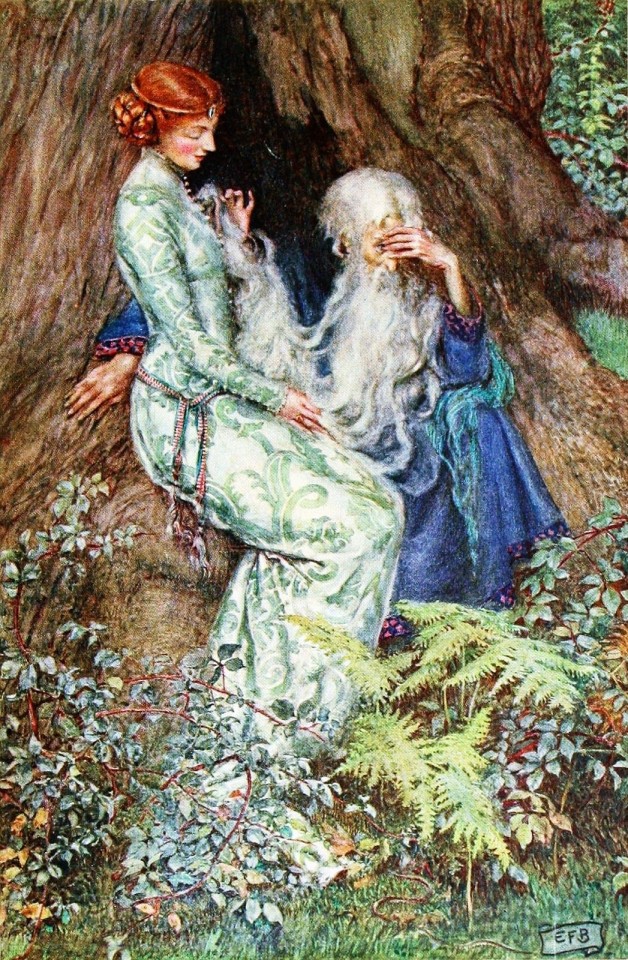
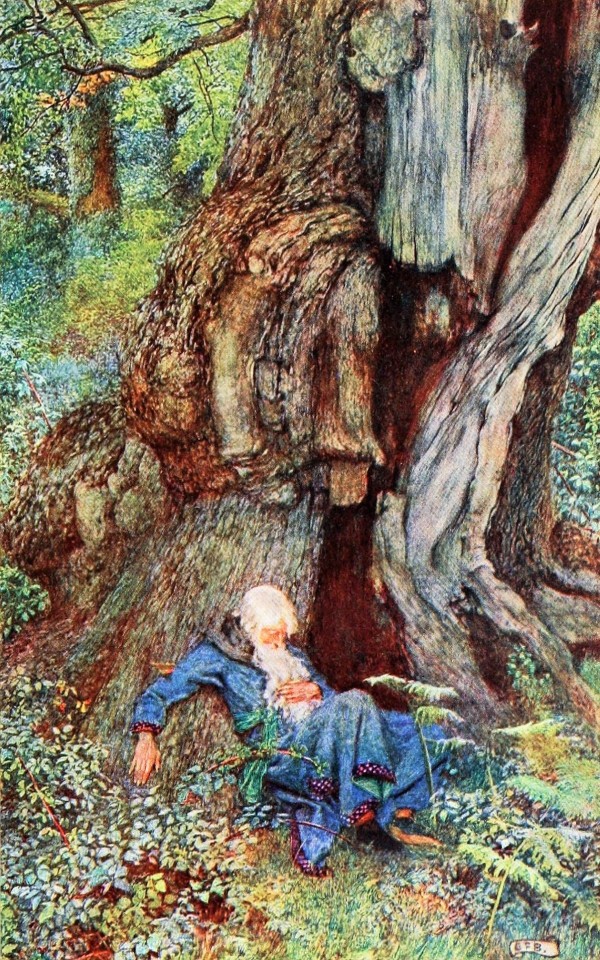
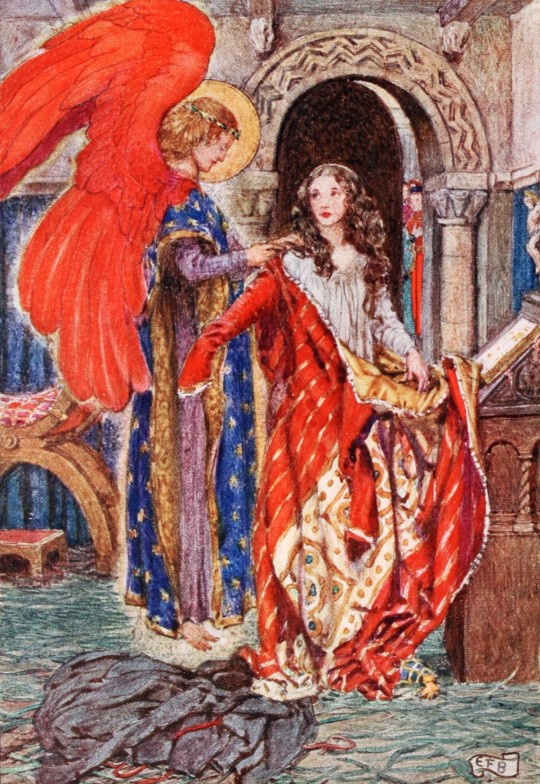
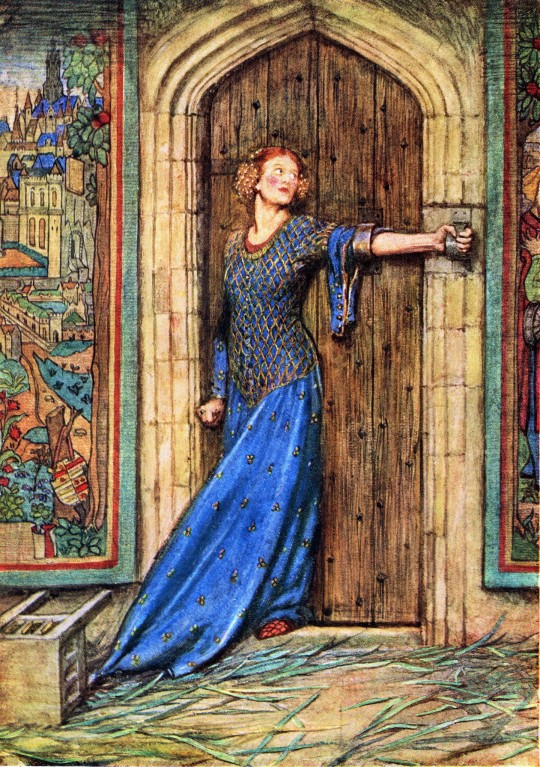
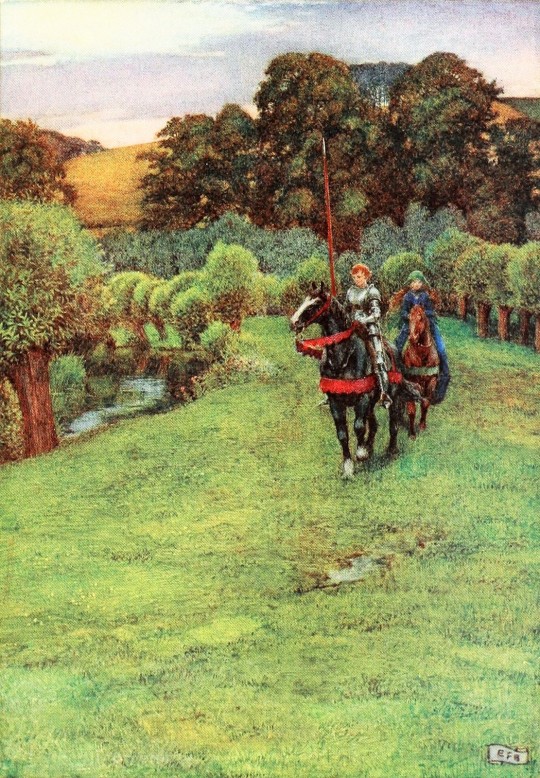
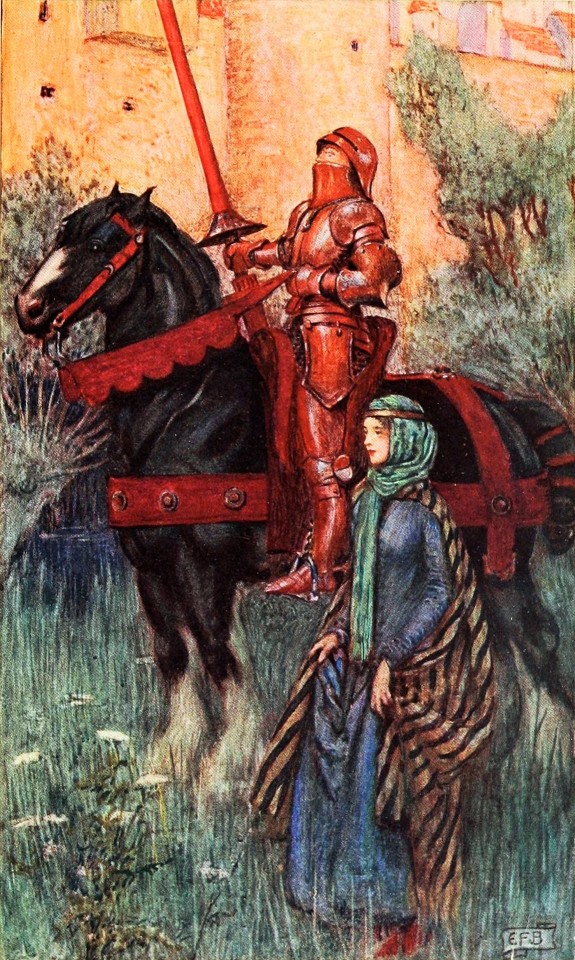
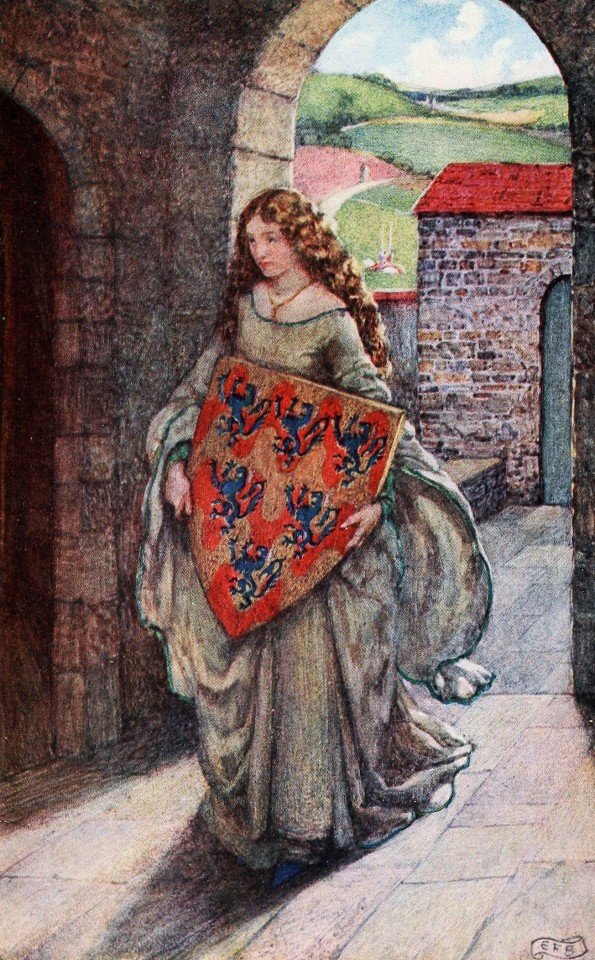
art by Eleanor Fortescue-Brickdale (1910s)
#eleanor fortescue-brickdale#arthurian legend#medieval art#book illustrations#20th century paintings#merlin the enchanter#queen guinevere#idylls of the king#kate barlass#golden book of famous women#the book of old english songs and ballads#1910s
3K notes
·
View notes
Text
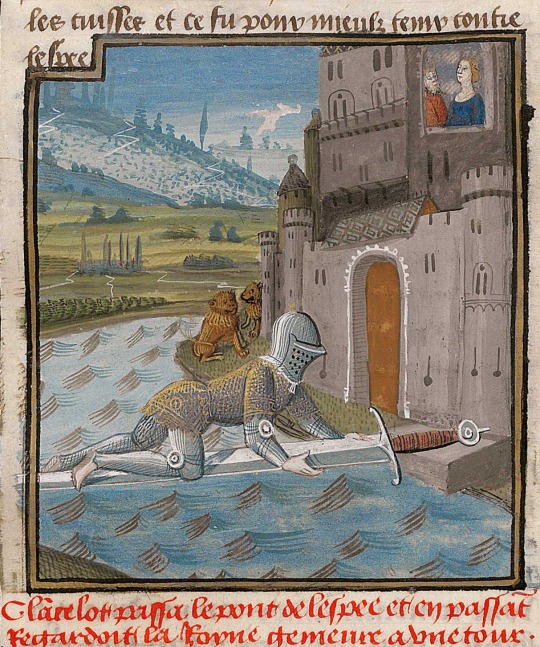
Lancelot crossing the Sword Bridge
Miniature illustration from a four-volume manuscript made for Jacques d'Armagnac, Duke of Nemours. Workshop of Évrard d'Espinques. Circa 1475.
#lancelot#launcelot#sir lancelot#arthurian#knight#knights#chivalry#chivalric romance#medieval#mediaeval#middle ages#chrétien de troyes#art#sword#bridge#guinevere#castle#camelot#meleagant#kingdom of gorre#illuminated manuscript#britain#france#mythology#queen#damsel in distress#realm#évrard d'espinques#jacques d'armagnac duke of nemours#europe
910 notes
·
View notes
Note
Hi!
Can you elaborate on "Fuck GRRM's committment to 'historical realism' without knowing anything about medieval social history"? I would love to know about what GRRM gets wrong about medieval gender roles, specifically.
So Cersei learns at an early age that she has no agency, her only value is producing heirs and is barred from traditional routes of power so she has to use underhanded methods such as influencing men with sex or using underhanded magical means. I would love an explanation on why this doesn't reflect medieval queen consorts and noble women irl.
Sure! The basic summary is: GRRM "knows" the things that everyone "knows" about the middle ages, which are broad stereotypes often reflective of a) primary sources that deserve a critical reading rather than being taken at face value and b) the judgements of later periods making themselves look better at the medieval period's expense.
As Shiloh Carroll argues, building on the work of Helen Young, “readers are caught in a ‘feedback loop’ in which Martin’s work helps to create a neomedieval idea of the Middle Ages, which then becomes their idea of what the Middle Ages ‘really’ looked like, which is then used to defend Martin’s work as ‘realistic’ because it matches their idea of the real Middle Ages.”
Since you're mainly interested in Cersei here, I'd strongly recommend a book: Queenship and the Women of Westeros: Female Agency and Advice in Game of Thrones and A Song of Ice and Fire, edited by Zita Eva Rohr and Lisa Benz. It's an excellent read and speaks to exactly what you're asking about. The tone of the book is very positive and non-judgemental when it comes to GRRM and his depictions of women on the whole, but I think some of this is rhetorical positioning to not seem like "mean angry academics jumping on fiction for not being accurate," as the actual content turns the reader to thinking about how much agency and power medieval queens had in different European societies and how little of that worked its way into GRRM's worldbuilding.
It's true that women typically didn't inherit titles and thrones in their own right, and that they were usually given in marriage for political/dynastic reasons. However, they weren't seen as brood mares whose only duty was to pop out sons: both queens and noblewomen had roles to play as household managers, counselors, and lieutenants, actively participating in the ruling of their domains and in local and international diplomacy (women in political alliances were not just pawns sent to a powerful man's bed, but were to act as ambassadors for their families and to pass information back and forth), and they had to be raised with an understanding of this so that they could learn to do it. Motherhood was very important, don't get me wrong, but it's a mistake to assume as pop culture does that a wife's foremost duty being to provide heirs for her family meant that she was ONLY seen as a mother/potential mother.
Catelyn is a great example of what was expected of women in these positions. But in the books, Catelyn is basically the only woman who inhabits this role, and the impression given is that she's exceptional, that she's just in charge of the household because she's so great at it that Ned allows her to be his partner, and that he listens to her advice because she happens to be a wise person in his orbit - and also that Ned is exceptional for giving so much power to a woman, because in the world of ASOIAF, it takes an especially good man to do this. In GRRM's view of the medieval world, realpolitik and the accumulation of power are the most important things, so men in Westeros are extremely unlikely to give up any authority to their wives, even though this is historically inaccurate.
Cersei, on the other hand, is supposed to be a more realistic depiction of what would happen to an ambitious medieval woman. There's a chapter titled "Queen of Sad Mischance: Medievalism, “Realism,” and the Case of Cersei Lannister" in the book I've rec'd, and it deals with why this is problematic extremely well. (This is the source of the quote at the top of this post.) In it, Kavita Mudan Finn argues that Cersei embodies pretty much every medieval trope for the illegitimate wielding of power by a woman. She underhandedly gets people killed for opposing her, she seduces men into doing her bidding, she advances her family's interests and her own at the expense of the realm. She's made sympathetic through fannish interpretation and Lena Headey's performance, but in the text she's an evil woman doing evil things. Even when she gets to be regent for her son - a completely legitimate historical position that allowed women to handle the levers of power almost exactly like a king - she continues to do shitty things and not be taken seriously because she's just not good at ruling.
But even before then, from a medieval perspective she had access to completely legitimate power that she didn't use: she'd have had estates giving her a large personal income, religious establishments to patronize (giving her a good reputation as a pious woman and people she'd put in high positions being personally loyal to her), artists and writers to patronize as well, power over her household, men around her listening to her counsel. That she doesn't have that is a reflection of GRRM either deciding these things don't really exist in Westeros in order to make it a worse world than medieval Europe and justify Cersei feeling she had to use underhanded means of power, or not knowing that they were ordinary and unexceptional because he has a good working knowledge of the politics of the Wars of the Roses but little to no knowledge of social history beyond pop culture osmosis, and, imo, little to no interest in actual power dynamics.
There are a lot of books I'd recommend on this subject. There's a series from Palgrave Macmillan called "Queenship and Power" and nearly all the books in it are THE BEST. Theresa Earenfight's Queenship in Medieval Europe is a very readable introduction to the situations of queens in European societies across the continent. She also has a book, Women and Wealth in Late Medieval Europe, that also addresses non-royal women's power. I'm also a huge fan of English Aristocratic Women, 1450-1550: Marriage and Family, Property and Careers, by Barbara Harris, which really emphasizes the "career" aspect of women's lives as administrators and diplomats.
475 notes
·
View notes
Text
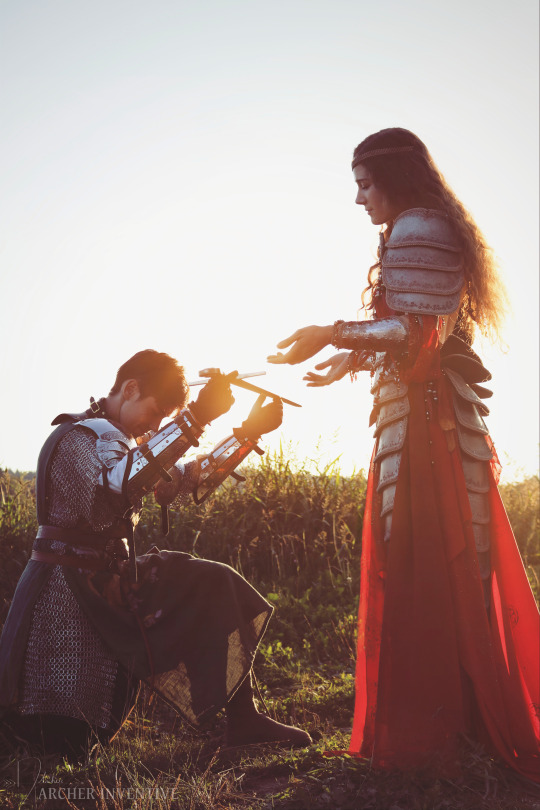
"And the mystery knight should defeat all challengers and name the wolf maid the queen of love and beauty" - George RR Martin
Some sword related content for your Saturday. :)
Thank you to Liv. FH for capturing this moment, and to @unicorn-shieldmaiden for always being such a lovely friend and model. ❤️
#lady knight#queen#the vow#oath#meet at sunset#armored dress#armor#knight#medieval#fantasy#photogaphy#archer inventive
1K notes
·
View notes
Text
𝐿𝑜𝑛𝑔 𝐿𝑖𝑣𝑒 𝑓𝑜𝑟 𝒯ℎ𝑒 𝒬𝑢𝑒𝑒𝑛


♡ Warning: Female!Reader X Male!Yandere, Male!Sodier!Guard!Yandere, Delusional!Yandere, Mention of non-consensual relationship, Mention of nsfw, Short imagine.
♡ Note:I had thoughts about nsfw with a medieval soldier/guard, but I needed to at least put something about it since I'm not very good with NSFW stories, maybe if this has repercussions I'll write something 👀
♡ Note2:I don't speak English so I'm sorry for any mistakes in writing.
⚠️ Minors please dni with most posts/follow ⚠️

Fight battles and wars that are not mine, live for a single purpose, the purpose of serving, the duty to the Queen and to this nation.
Never before have I been so loyal to something or someone, living life in an endless limbo, without purpose or happiness, without duty or reason to continue living, existing as a long-lost soul, wandering in this dark and endless limbo.
I was always good at obeying orders, doing what I was told to do, after all;
I had no ambitions, values, opinions or desires, I was a shell of a man, so I don't understand…
That woman, who had just been entrusted with such a huge responsibility, taking care of an entire kingdom, carrying such a heavy burden that was placed on her shoulders without even having her wishes taken into consideration, could have noticed my presence.
She looked deep into my eyes and extended her hand to me, offering me a purpose, a reason to live, not as an order but as a request.
As if we were equal, as if what I wanted was important.
A warrior, her sword, her hands, her dog, I was all of that.
Fight your battles, Win your wars, be your eyes and ears, be your most loyal dog, but I was flawed
Serving her is my purpose, my duty, but my desire was to possess her.
Desire corrupted me, growing inside my chest like weeds, gnawing at me from the inside, expanding and feeding on every little sigh, every little smile, every look from her.
I don't know when it started, but when I finally noticed it, it had already spread through my being like a fire in a dry forest on a burning summer day.
My body burned in flames even away from her, my mind, corroded with profane thoughts, making me desire her so ardently.
Your smile, your voice, your eyes, your touch… I felt haunted every time I closed my eyes.
I wanted to touch her, hear her voice calling to me, feel her tremors and fill her with my bastards, desecrate her completely, make her mine and mine alone.
I know she feels the same, her kindness, her pity, it can be nothing but love, a pure love from someone who has never been tainted by the sadism and cruelty of life, who has never been desecrated by lust and greed, a pure being .
The queen must be desecrated by the world, but it's okay if it's me…right?
Your most loyal guard, your most obedient dog, right?
I can it,right? I have that right, I'm only loyal to the queen!
She certainly agrees with me… I can protect her from the dark world, even if I end up desecrating her along the way…
The queen will be alive and safe, the queen will be mine...
Long live for the Queen

#lillygamine#yandere smut#yandere x you#yandere x reader#yandere imagines#tw yandere#yandere#yandere male#dark romance#yandere soldier#yandere medieval soldier#queen reader
236 notes
·
View notes
Text
Different Types of Queens
Queen Consort: a wife of a ruling, living King
does not have her husband’s political powers
has a similar status as her husband (unless it’s a morganatic marriage)
Queen Regent: the wife or widow of the King left to use his royal prerogative to rule in his incapacity, absence or death
rare and unlikely to happen again in the British monarchy (Katherine Parr)
in ASoIaF, when her son has not come into his official adulthood, even when he technically is the King
Queen Dowager: a widow of a past, dead King
usually keeps the precedence/status of a Queen Consort
doesn’t have to be the mother to the new ruler
still can’t make executive, legal, judicial decisions, unless she is in line to succeed, then she’d just be Queen regnant, in which case she’s likely not use her Dowager title
in various imperial Chinese dynasties, could enjoy a lot of de facto political power
Queen Mother: a mother of a ruling, living ruler (a Dowager as well)
in the British monarchy, not really a solid or substantial title or really used
in Europe, usually kept the precedence/status of a Queen Consort
in Europe, still can’t make executive, legal, judicial decisions
in the Ottoman Empire, the Sultana, was politically only lower than the Sultan himself and enjoyed a lot of power due to Islamic “A mother's right is God's right”
in more “symbolically”-driven societies (ex. the Yoruba’s kingdoms) she doesn’t have to be a blood relative and can just be an individual of any age imbued with the ritual essence of past queens in the ceremonial sense--regarded as the ruler’s mother then
Queen Regnant: a woman who rules in her own right
the exact same status and abilities as a a male ruler
in Europe, her spouse can be a King Consort or a Prince Consort, according to the allowances by custom or power and agreement of persons arranging the terms of rule and marriage
her husband will not outrank her, nor will he have her political powers de jure
[NEW INFO] however, as we see in Queen Joanna of first just Castile and then of Aragon, queen Regnantas could still have their power materially taken from them by men/male relatives/spouses like Joanna’s father Ferdinand of Aragon and husband Philip I of the Spanish Hapsburgs -> even under laws or customs like Jure uxoris, or “right by wife”, which “describes a title of nobility used by a man because his wife holds the office or title suo jure ("in her own right"). Similarly, the husband of an heiress could become the legal possessor of her lands”; Philip I was her official “co-ruler”
#medieval queens#medieval europe#european history#european queens#the medieval period#queens#queen consorts#queen regnants#queen mothers#queen dowagers#queen regents#monarchy customs#non-european monarchy#european monarchy#definitions
10 notes
·
View notes
Text


dido tearing her hair out in madness & dido's suicide
in an illustrated copy of the 'eneasroman' by heinrich von veldeke, alsace, c. 1419
source: Heidelberg, UB, Cod. Pal. germ. 403, fol. 32v and 51r
#15th century#eneasroman#heinrich von veldeke#dido#greek mythology#madness#queens#violence#medieval art
595 notes
·
View notes
Text

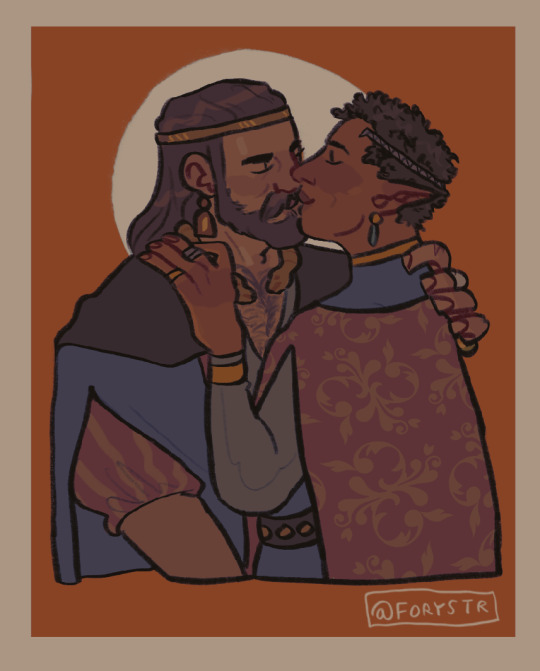
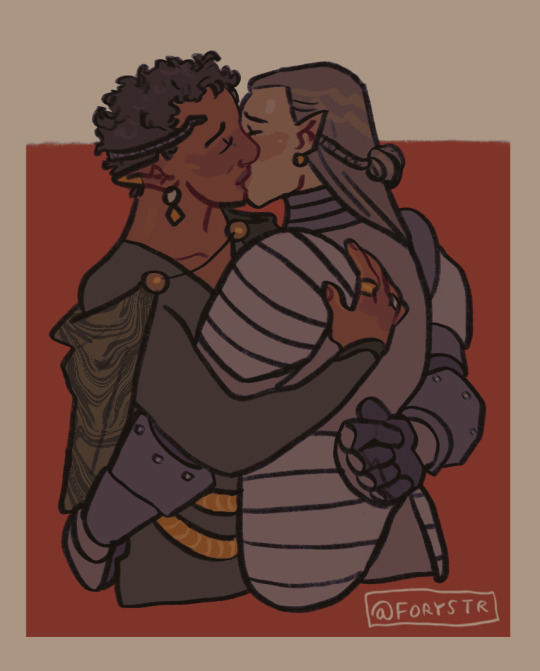
Hey me and the Queen saw you from across the Round Table and we really like your vibe.
#my art#arthuriana#arthurian legend#king arthur#queen guinevere#medieval#queer#chivalry#queer chivalry#lancelot#lancelot du lac
602 notes
·
View notes
Text

Elizabeth of York, fashion character design, c. 1481.
#the wars of the roses#15th century#historical#medieval#british history#medieval england#art#illustration#sketch#edward iv#elizabeth woodville#elizabeth of york#henry vii#henry vi#margaret of anjou#margaret beaufort#isabel neville#richard iii#the white queen#the white princess#medieval fashion#historical fashion#character design#artists on tumblr#medieval costume#royals#house of york#plantagenets
322 notes
·
View notes

